Grieving is a hard and long process. A parent mourns their child for the rest of their life, but should that loss overshadow the family’s happy events? Birthdays, graduations, weddings, even? When this woman asked her daughter for a memorial table for her long-lost sister at her wedding, the bride bluntly refused.
The daughter wanted her wedding to be her day, not overshadowed by the loss of her sister, which happened many years ago. The mother, hurt and insulted, asked the internet whether she was wrong to tell her daughter to “Get over herself” and grant her request.
To find out more about how families can overcome their differences in grief, Bored Panda reached out to a grief and loss coach, Iris Arenson-Fuller, PPC, CPC. She told us what could’ve been a better way for the mother to address her grief in this situation. Read her expert insights below!
Iris Arenson-Fuller: Vision Powered Coaching | Facebook | Instagram | Blooming Beyond Brooklyn: Poems of Loss, Sorrows & Lessons
Everyone deals with grief differently, but no sibling should live in their deceased one’s shadow

Image credits: cottonbro studio / pexels (not the actual photo)
This mother thought her daughter’s wedding should include a memorial table for the bride’s long-deceased sister
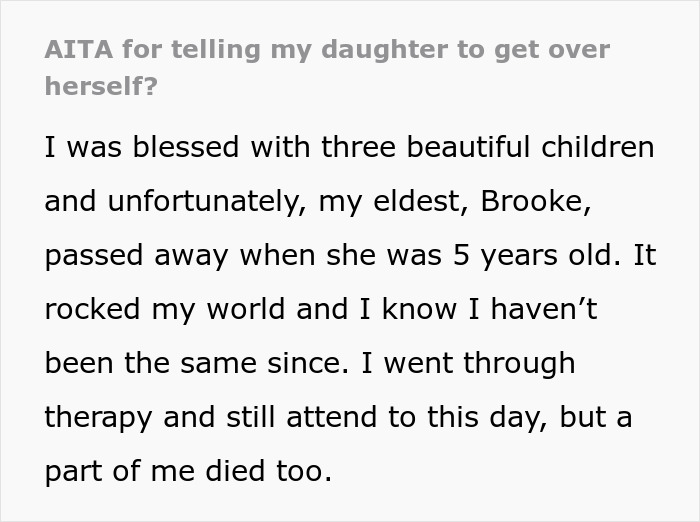
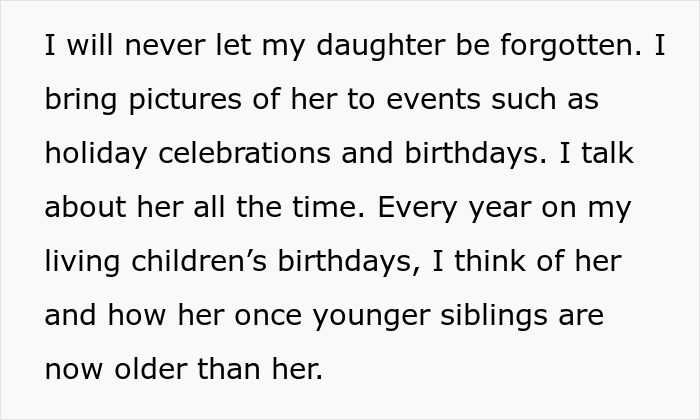

Image credits: Joshua Hoehne / unsplash (not the actual photo)
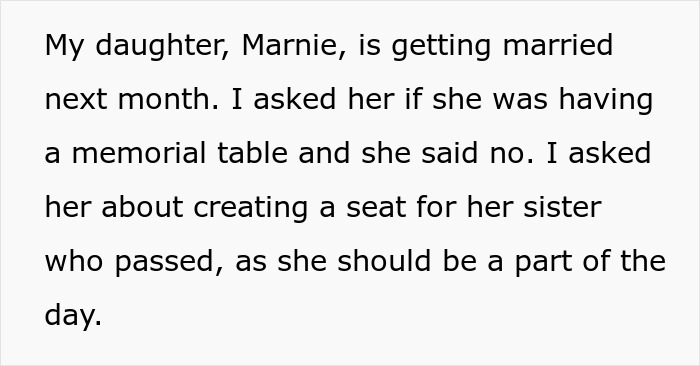
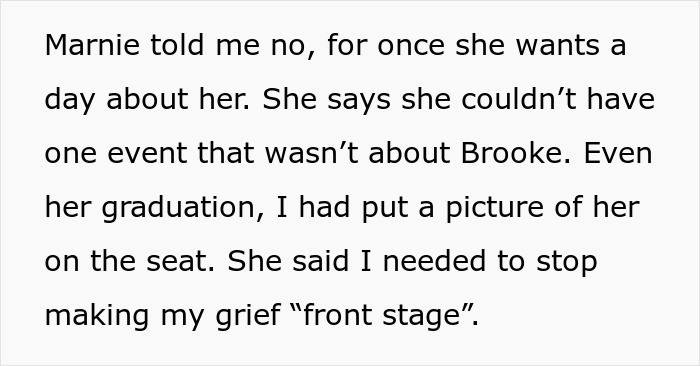
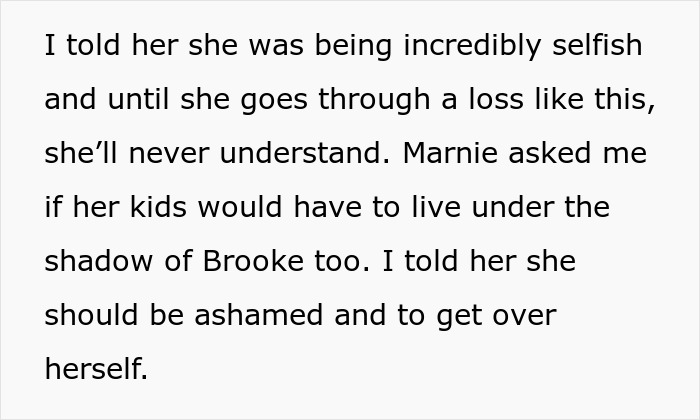

Image credits: Karolina Kaboompics / pexels (not the actual photo)

Image credits: Mother_Put_1042
Asking your living child to honor their deceased sibling on their wedding day is quite intrusive
Iris Arenson-Fuller has spent many years helping people deal with grief, and while the mother’s feelings are understandable, Arenson-Fuller says that the daughter’s reaction is quite appropriate and understandable as well.
“Demanding that a daughter have a memorial table for the departed sibling at her own wedding is really intrusive, in my opinion,” she says. “This is a special day for the daughter and her husband-to-be. It is about joy, new chapters, love and life. It’s not about the departed.”
It’s natural for the mother to feel sad during a time like this. “Happy occasions bring many ambivalent feelings to those who have lost close loved ones,” the grief coach says.
“Mom needs to spend some time alone before the festivities and perhaps after, sitting with her feelings, maybe even writing them down and having a good cry. Her daughter’s wedding is not the place to focus on the deceased child.”
Arenson-Fuller says that if the mother feels conflicted or is unable to feel happy for the daughter on her wedding day, she should seek some help. While her grief is understandable, demanding that a bride make her wedding day about her deceased sister is not okay.
“We don’t ‘get over’ the loss of a child, or of any beloved,” the grief expert points out. “Time does not heal, as many erroneously believe, though it can soften the sharpness. The pain will always be there and will sometimes take us by surprise at unexpected times, or will be triggered by something.”
A grieving family should talk to each other to make the grieving process easier for everyone
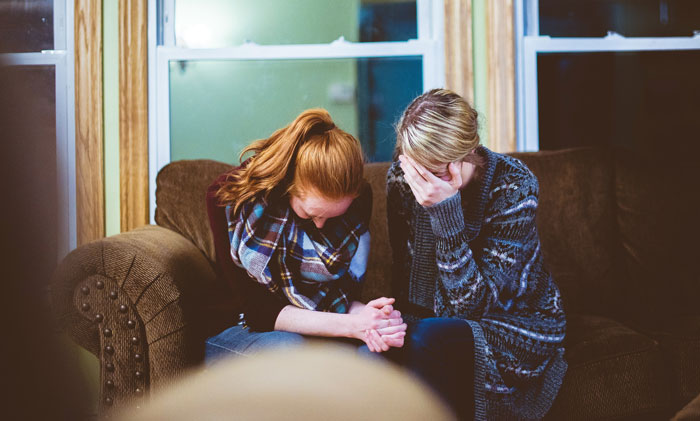
Image credits: Ben White / unsplash (not the actual photo)
From what the author describes here, it seems that the mother and the children have different ways of grieving or are at different stages of grief. And the best thing to do in this situation is for the mother and the living children to talk their feelings out.
“Based on my personal experiences with many losses, as well as my training and work with grieving individuals, I would say that open honest conversation from the get-go is the healthiest way to enable good communications and open processing of grief,” Iris Arenson-Fuller says.
“Some people can more easily express their feelings than others. If the mother is always comparing her living children to the departed sibling, of course, this would not be a good thing.”
“If, however, she is just mentioning the one who [passed away], because she needs to speak the name and remember, that’s a whole other story.” In some cases, people might need to express their feelings and thoughts in a less triggering setting. A grief coach or a grief counselor might help them do just that.
“The mother should explain she is having a hard day with memories and feelings when they hit her hard. She should encourage her other offspring to speak about their own, but should never insist or push them,” Arenson-Fuller says. “Again, it’s important to let them know how much she values them, loves and cherishes them, yet also loves and misses the deceased.”
“She should tell them that she is ready to listen, if and when they ever need to talk about their feelings regarding the deceased, regarding their relationship with the deceased, even if they worry about it, upsetting her or even making her cry.”
Many people called out the mother for putting her deceased daughter before her living children
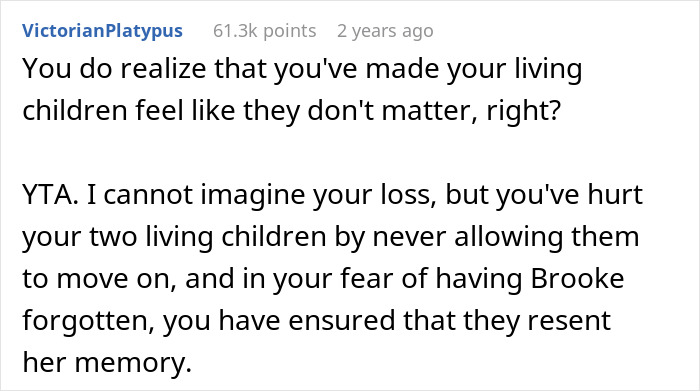
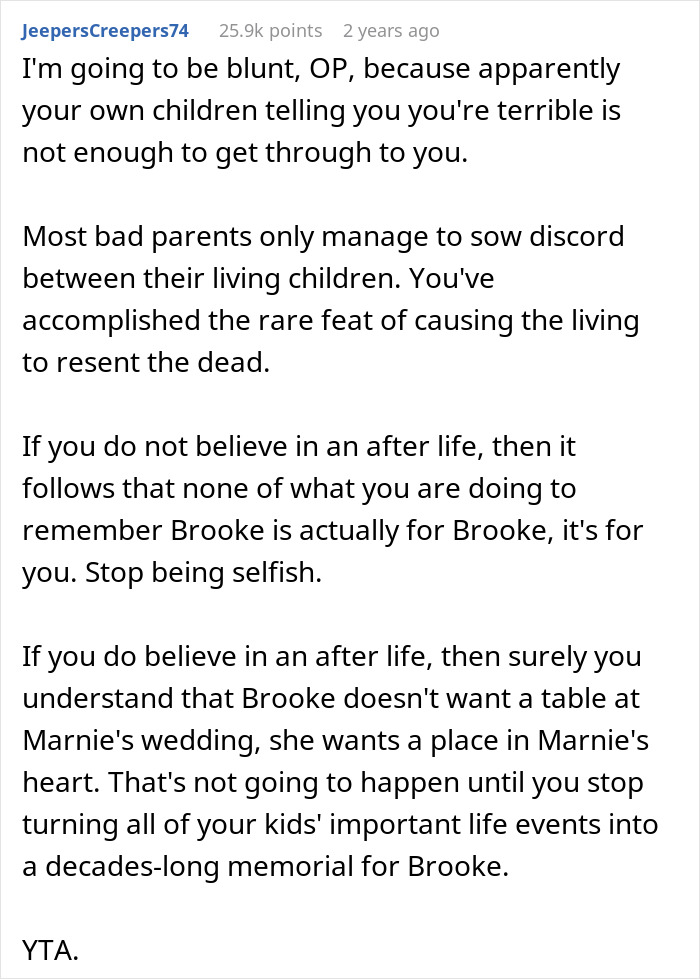
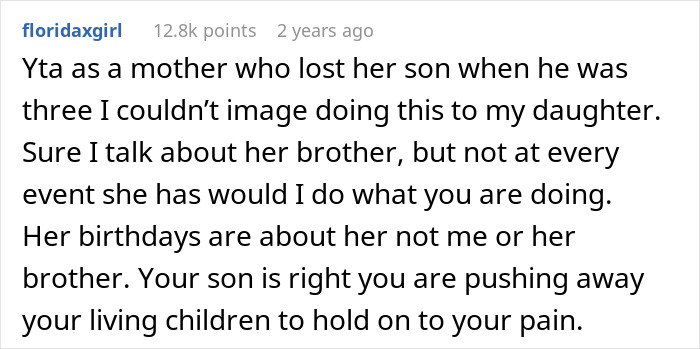

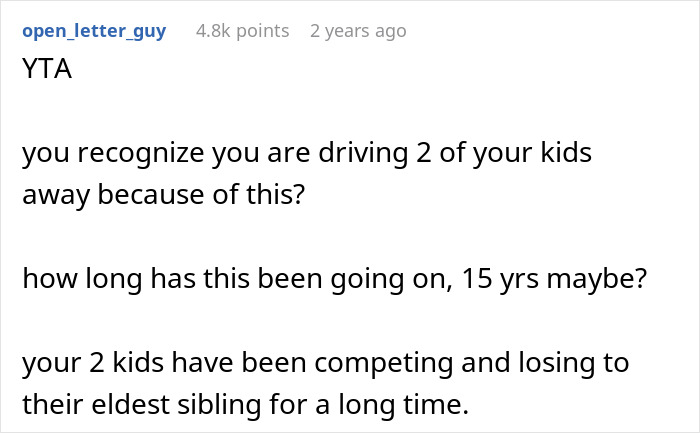
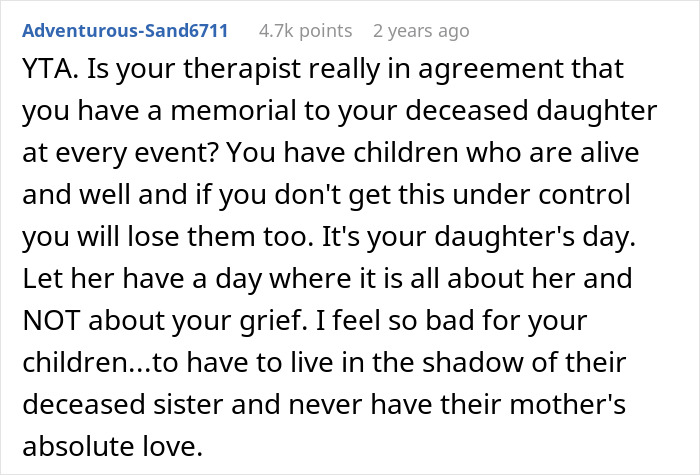
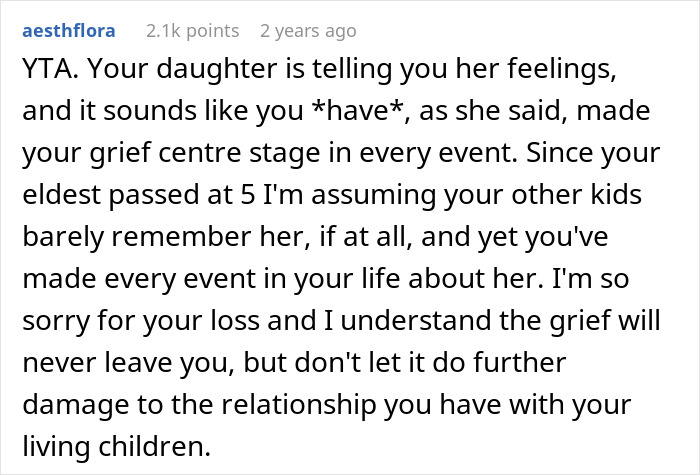


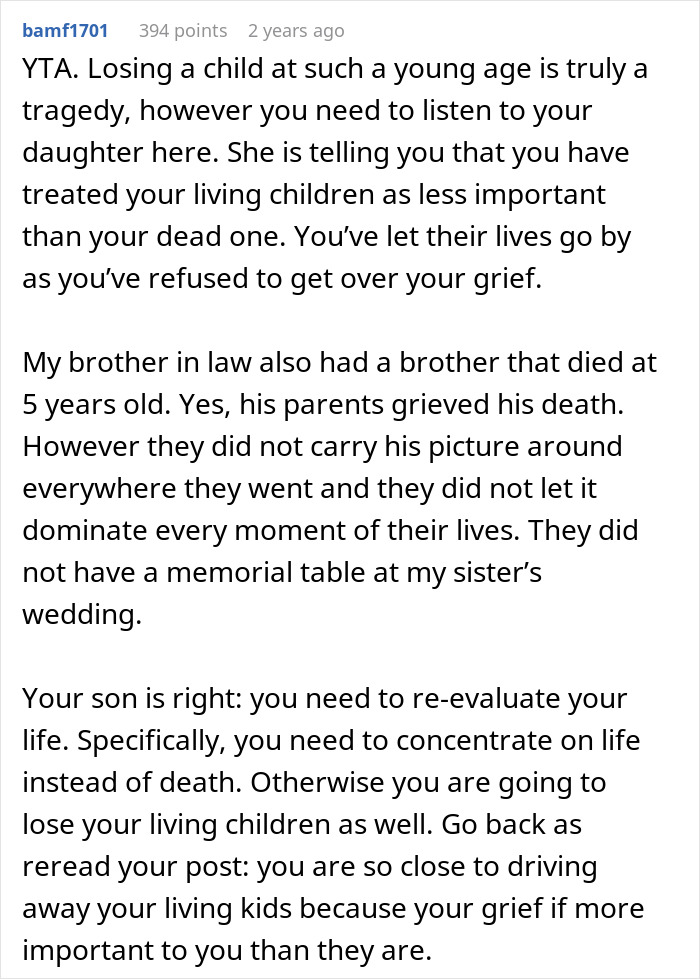
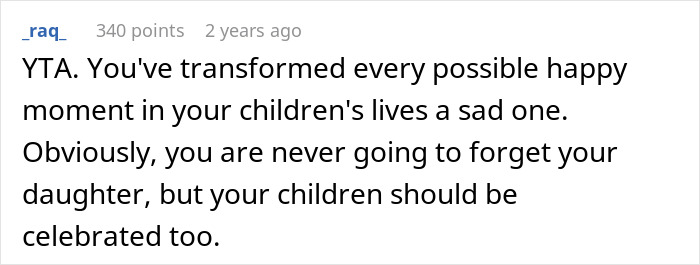
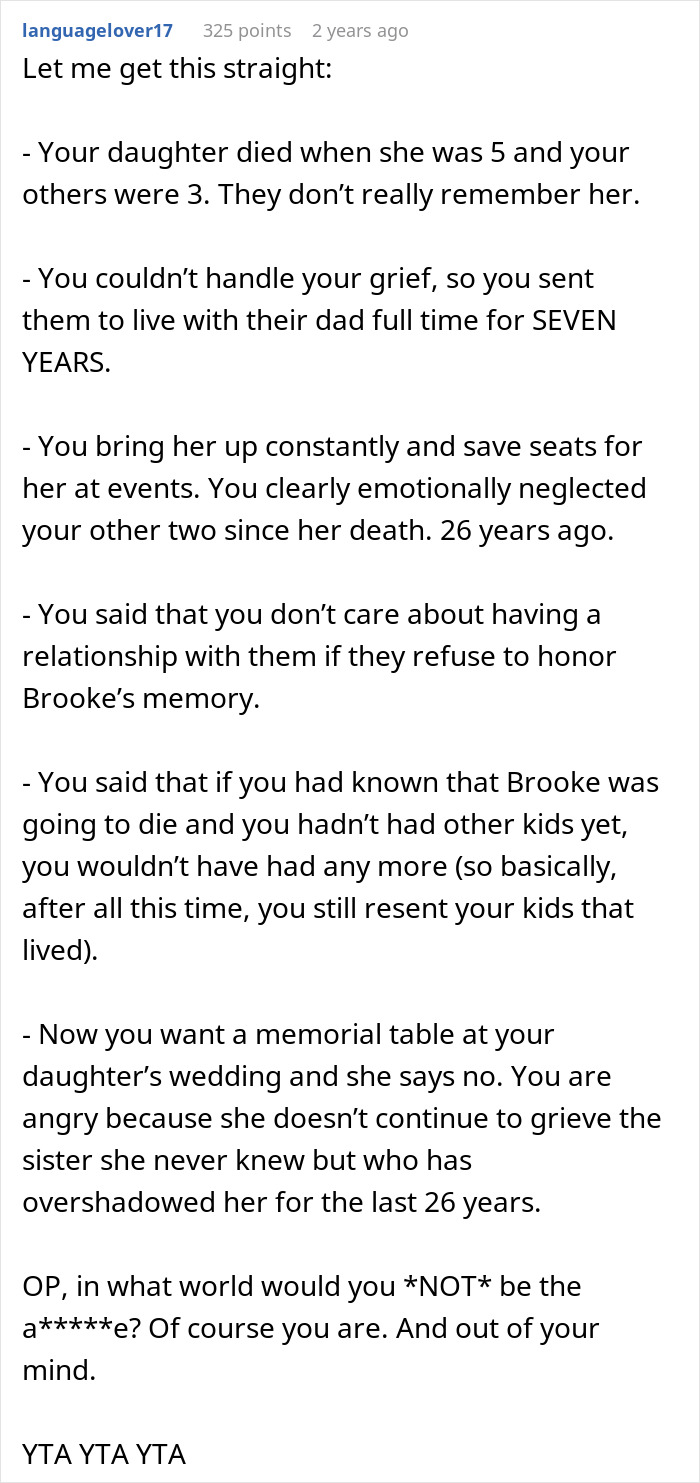
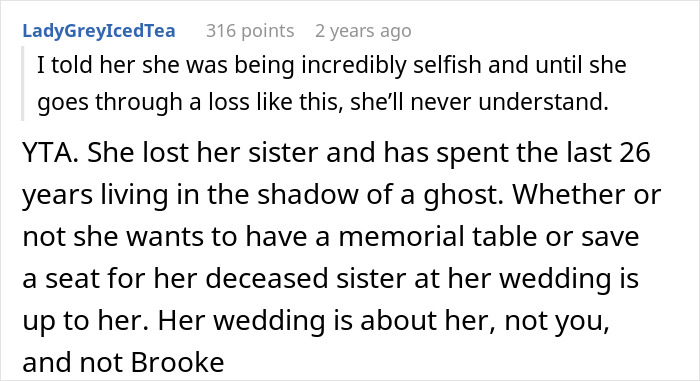
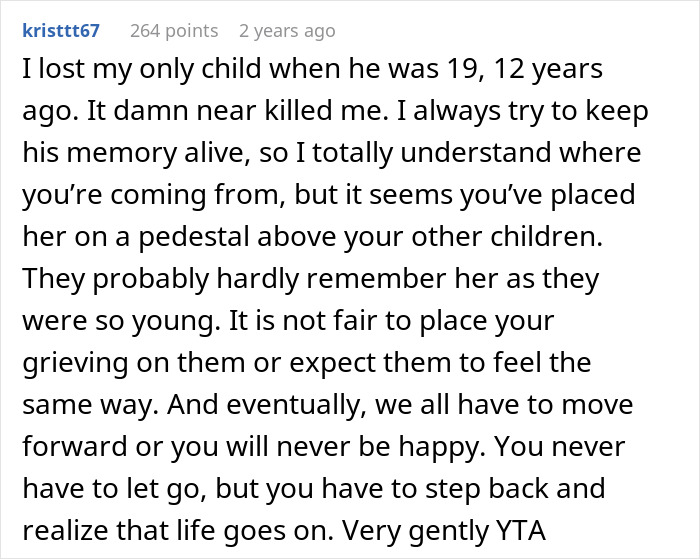

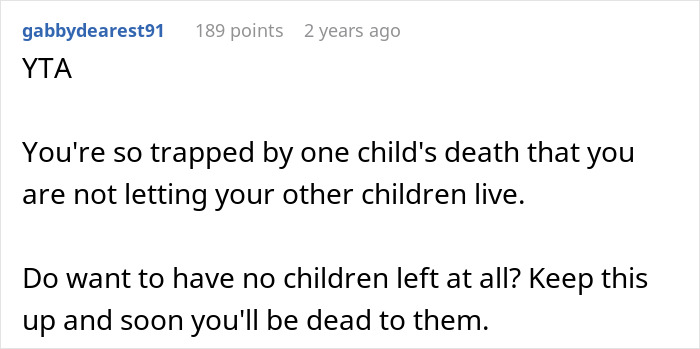
However, some netizens thought that the mother should be able to grieve how she wants










